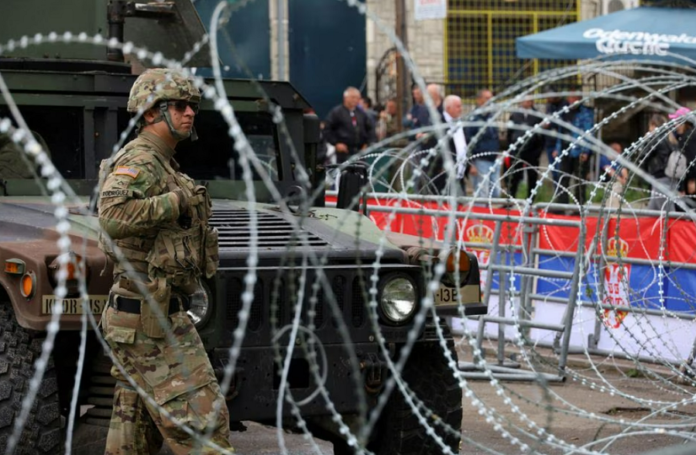NATO forces in Kosovo are ready to face any situation if acts of violence similar to recent encounters threaten the peace, the NATO commander in Pristina said late on Monday, according to Reuters.
Some 30 NATO peacekeeping soldiers defending three town halls in northern Kosovo were injured in clashes with Serb protesters late in May. Fifty-two protesters were wounded.
NATO, which has been guarding Kosovo since the war ended in 1999, decided to deploy an extra 700 troops and put another battalion on high alert, bringing its force to about 4,511.
“We plan to face any kind of circumstances. That’s the reason why we received additional forces. We do not react, we act,” the commander of NATO troops, known as KFOR, Angelo Michele Ristuccia told a group of journalists from his headquarters in the outskirts of Pristina.
He said the situation remained very tense, despite relative calm in recent days.
“There is not a military solution at this moment because the only way to solve this situation is a political decision based on both sides’ will to normalize their relations. But first to de-escalate,” Ristuccia said.
The north of Kosovo, which is mainly inhabited by ethnic Serbs, has seen the worst tensions since the country declared independence from Serbia in 2008.
Violence erupted last month after ethnic Albanian mayors took office following a local election in which turnout was just 3.5% after Serbs who form a majority in the region boycotted the vote.
The United States and European Union have called on Prime Minister Albin Kurti to withdraw the mayors and remove special police used to install them.
Kurti has made its own demands and things further escalated last week when Serbia arrested three Kosovo police officers at the border area under disputed circumstances and ordered a continued detention for a month.
Kosovo says the three were arrested inside its territory by Serbian officers who had crossed the border. Belgrade says they were detained inside Serbia.
„We are here to avoid the situation to worsen and to defuse tensions…The only way to de-escalate depends on the political willingness of both parties,” Ristuccia said.
Some 50,000 Serbs who live in the north part refuse Pristina ruling and consider Belgrade as their capital.


